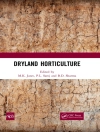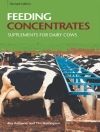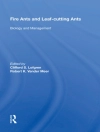If a global population of 9 billion by 2050 is to be fed adequately, more food must be produced and this in keeping with increasingly stringent standards of quality and with respect for the environment. Not to mention the land that must be set aside for the production of energy resources, industrial goods, carbon storage and the protection of biodiversity.
Зміст
Acknowledgements.- Introduction.- 1. Setting the stage.- 2. Eat well, eat better.- 3. Reducing losses and waste at consumption, distribution and processing levels.- 4. Reducing post-harvest losses in developing nations.- 5. Producing other goods.- 6. Managing ecosystem services.- 7. Will there be enough land?.- 8. The need to strive for productive yet ecological agriculture.- 9. Feeding the world starts with fighting poverty.- 10. Towards a global governance of food.- Conclusion.- References.- Glossary.
Про автора
Marion Guillou has been the President of the French National Institute for Agricultural Research (INRA) since 2004. A graduate of the École Polytechnique, she is an agricultural engineer and holds a doctorate in Food and Nutrition Sciences. Gérard Matheron has been the President of the French Agricultural Research Centre for International Development (CIRAD) since 2010. He is an agronomist and holds a doctorate in Quantitative Genetics.












